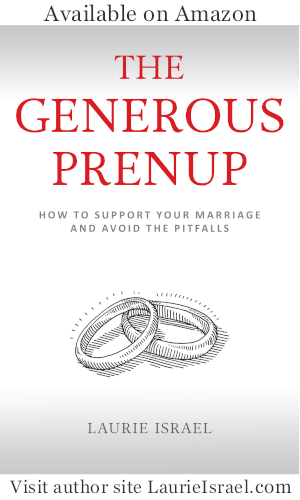by Laurie Israel, Esq.
At the beginning of each mediation, there is a moment of suspense. The mediator does not know the parties’ stories. Yes, there are two stories, because each client has a separate and distinct version of reality. Then the stories begin to be told.
![]()
It is very helpful to retain what the Buddhists call “beginner’s mind” at the start of a mediation, and even throughout the meetings. I have been thinking of “Zen Mind, Beginner’s Mind,” by Shunryu Suzuki, which I first read when it came out in 1971. The concept of “beginner’s mind” has stayed with me all these years, and I am starting to strongly connect it to the art and practice of mediation and what I do as a mediator. In particular, I am struck by the connection with proceeding as a mediator with “beginner’s mind” and its helpfulness in lessening or eliminating mediator bias.
 “Beginner’s mind” is open, limitless, and tries not to form conclusions. It tries not to make assumptions. Assumptions are based on your own life experience, not your clients’, and may differ from yours. Assumptions will limit your interactions with your clients and prevent you from really hearing your clients and understanding them. When you speak, often you speak from your own point of view and not that of your clients. The danger of your words is that they may be an unwitting expressions of bias, produced by your own assumptions, and may often cloud and not be consistent with what your mediation clients are saying that they have experienced.
“Beginner’s mind” is open, limitless, and tries not to form conclusions. It tries not to make assumptions. Assumptions are based on your own life experience, not your clients’, and may differ from yours. Assumptions will limit your interactions with your clients and prevent you from really hearing your clients and understanding them. When you speak, often you speak from your own point of view and not that of your clients. The danger of your words is that they may be an unwitting expressions of bias, produced by your own assumptions, and may often cloud and not be consistent with what your mediation clients are saying that they have experienced.
A “beginner’s mind” is innocent. It is not the mind of an expert. The “beginner’s mind” is open and ready to accept. The expert’s mind tends to form conclusions quickly and prejudge. Remember that the word “prejudice” comes from the word “prejudge”. “Prejudice” is a close sibling to “bias.” As we know and have learned, as experienced mediators, the existence of bias on the part of the mediator is the flaw that can most readily destroy the success of a mediation.
Keep your innocence and inquiring mind when you make your first comment to your mediation clients. In fact, delay as much and as often as you can in speaking during a mediation. You will find that when you finally do speak, what you say will be a more helpful comment to your clients.
Don’t assume anything. Try to keep your innocence throughout the mediation. It is true (at least for some mediators) that we offer something more than just a process. Our expertise on the subject matter of the mediation (e.g., divorce law if we are divorce mediators) is a resource that is helpful to the mediation clients. However, we should wait until the most appropriate moment before imparting information and not foreclose the process of fact-finding, inquiry, and new and clarifying communications between our clients.
When you sit quietly listening to your clients speak, many things will bubble up inside you. You will react to what you hear based on your own personal history. Your own thoughts and memories will be elicited. You may want to speak and express them to your clients. But be still, keep silent, and wait. You will find in most cases that your own story is not the best way to interact with your clients and move the process forward.
When you keep a “beginner’s mind” in mediation, your reactions will be fresh, even if you have heard the same or similar stories many times before. If you retain your “beginner’s mind,” you will stay with the limitless and sometimes unforeseeable possibilities that may be contained in your mediation clients’ words and not limit them by your own life experience or psychological history.
By keeping a “beginner’s mind” you can avoid dualism (this is “right,” this is “wrong”) and judgment. It will help you to be present with your clients instead of being just partially present.
As Suzuki says, the beginner’s mind is not a closed mind; it is an “original” mind, which contains everything in it. It is an “empty” mind and therefore is ready and available for your clients. Sitting quietly for 10 minutes before your clients arrive will help you gain the peace of mind that will be most helpful to the mediation.
If you make a mistake, such as an off-base assumption you made (as you will immediately find out by your mediation clients’ reactions), forgive yourself, learn from it, and move on. Be more vigilant, say less, and think more before a word tumbles out of your mouth. Less is better in mediation.
So continue to think about the concept of a “beginner’s mind” and choose to work with it. Your efforts will be rewarded, and you will become a more effective mediator.
Copyright ©2010 Laurie Israel.